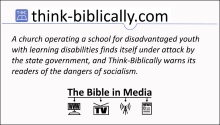
I've been reading a fascinating work by Dr. Michael S Heiser titled, The Unseen Realm. It is a lengthy work that covers a great many topics along a common theme — describing a possible organization of powers and kingdoms in the spiritual world. Due to its complexity, I won't be providing a detailed book review but I'd like to let others know what to expect should they have an interest in picking up this well researched tome. There is a lot to like about this non-fiction work, even though I don't agree with everything in it, but I have one primary criticism.

I've had the question asked of me more then once, "is it okay to cut off a family member who keeps making bad choices?" Wherever there is relationship conflict may be found. So ordinary is this proverb that even Peter asked of our Lord, "how often do I need to forgive someone?" Jesus answered, depending on your translation, "seven times seven" or "seventy times seven" or even (seventy-seven" times (Matthew 18.21-22). Either way, the point is that you forgive them as many times as they ask for it. God does not give up on the repentant, and neither should we.

As Christians we often wonder, "How would Jesus vote?" Theologically speaking, this is the wrong question. Jesus wouldn't vote because he is the King. That is not to say that we shouldn't vote, or be involved in politics. Indeed, it is part of our responsibility as ambassadors for the kingdom to work in whatever way we can to instill in our societies the values of God. There is great benefit to this. In doing so, however, we must keep Jesus in proper perspective, and our own place in his Kingdom and in earthly kingdoms in a right view.

"Media" used to mean "print media" like books and newspapers, but the world has grown. Today media can also mean radio, television and movies delivered to personal computers, tablets and cell phones. As the world's best selling book of all time the Bible continues to make headlines, both good and bad, across all forms of media: A church operating a school for disadvantaged youth with learning disabilities finds itself under attack by the state government, and Think-Biblically warns its readers of the dangers of socialism and socialist politicians.

As a young adult I was dismayed by the fact that the small Gospel books meant to be given away were of the Gospel of John. Luke has long been my favorite because of his clear, logical presentation of the facts of the gospel message. John was too emotional for me. He is more concept oriented, contrasting themes, light and dark, that sort of thing. Luke is a book I can get my head around. Better yet, I thought, would be a book of Luke and Acts together as it tells a more complete story.

Nearly 1500 years ago, in about 530 AD, a man was born initiallyand given the very Italian name of Venantius Honorius Clementianus Fortunatus. He served as a bishop in the early church, but before then he was a poet and hymnodist. As a man of words, he rose to remarkable heights and served many kings and rulers even at an early age. Imagine his dismay when he began to lose his sight. His vision darkened with terrifying swiftness. Being a man of faith, he prayed for healing, fasted frequently, and in a last ditch effort made a pilgrimage to Tours.

Dr. Samuel Lamerson, a professor at Knox Seminary, said something like, "There is no Republican, Democrat, Libertarian or Independent politician that has the answers to the problems that plague humanity. Only Jesus has those answers and will one day resolve those problems when he ushers in his Kingdom." His statement started me thinking once more about the relationship Christians have with their fallen, earthly governments and the perfect (if incomplete) kingdom that we serve in Christ Jesus. It seems that while Jesus taught a lot about the Kingdom of God, to his followers today its barely an afterthought.

Back in 2003 I was, for the first time ever, excited about a Christian movie. I know that sounds odd for a guy who has been a Christian most of his life, but honestly, Christian movies from the 1980's and '90's were pretty cheesy. Most people believe the age of poorly produced Christian films ended with the release of Mel Gibson's The Passion of the Christ in 2004. Not for me. For me it ended a year earlier with an MGM film titled Luther. It starred Joseph Fiennes as the "arrogant little monk" who started the Reformation. It is still one of my favorite movies.

As it is today, so it was then. Just as Israel today awaits the coming of the Messiah, so to othe Jews of Jesus' day were looking and seeking the Messiah. An inscription at the Essene community quoted Deuteronomy 18:15: "The Lord your God will raise up for you a prophet like me from among you – from your fellow Israelites; you must listen to him. " This passage is one of hope that spread to every kind of Jew, from the Essene's through rabbinical Jesw and even to the Samaritans.

Pop quiz gentle readers, who said the following: "Of course I myself was convinced that it was necessary to do many hostile things against my enemies, and that is exactly what I did. I locked them up in prison by the authority I received from politicians, and I cast my vote against them in the courts. I even tried to get them to commit crimes because I was so furiously enraged at them." Who do you think spoke those words? No, it may sound like Robert Mueller but it's not him. Do you give up? The answer is Saint Paul.

I took the time to transcribe Ms. Borowicz prayer before the Pennsylvania congress word for word and in its entirety because some members of the house were offended and made outrageous claims regarding her prayer. Claims like "it's anti-Semitic" and "Islamophobic". Please correct me if I'm wrong, but the prayer is very pro-Israel, pro-Jerusalem and pro-Jewish in its nature. In what way is it anti-Semitic? I don't see it. As for Islamophobic, she never mentions anything remotely connected to Islam in the prayer. On it's face, there is nothing here about Islam.

"Media" used to mean "print media" like books and newspapers, but the world has grown. Today media can also mean radio, television and movies delivered to personal computers, tablets and cell phones. As the world's best selling book of all time the Bible continues to make headlines, both good and bad, across all forms of media: The international assault on Christianity continues, with China closing churches, the UK prosecuting a reporter for her Catholic views and claiming Christianity is a religion of violence, and the European Union cracking down on people who insult Muhammad. There is good news for Israel, though.
